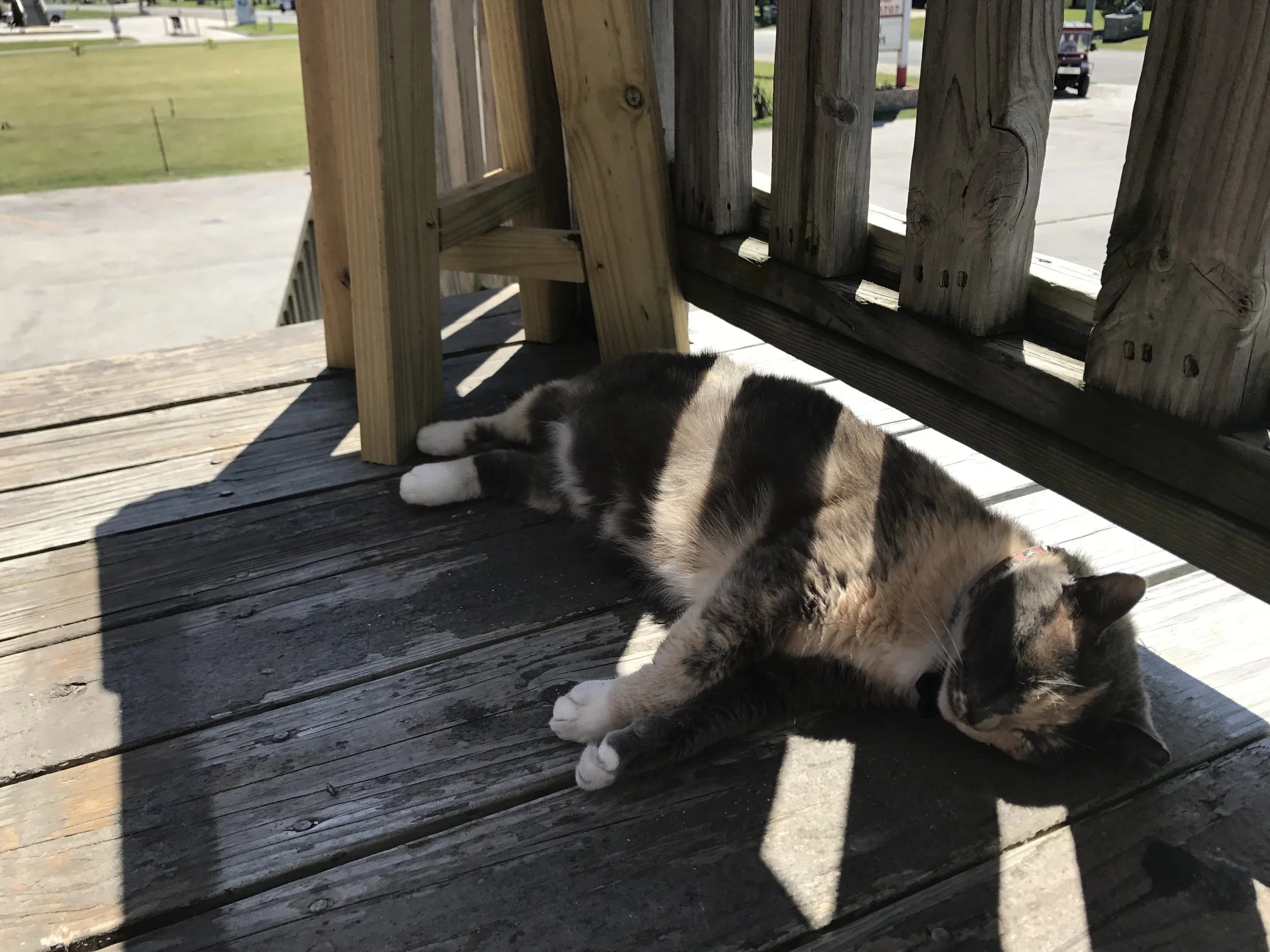I had never heard of Grand Isle before my travels as a Bookpacker began. Upon first hearing the name a few weeks ago, I gave it a Google and found pictures of wide, flat beaches, porches of distressed wood, and piers jutting out to kiss the sunset. Oh, okay, I thought. This must be the Nantucket of Louisiana. Evidence of my Massachusetts-based worldview, to be sure.
Just as Nantucket acts as a summer getaway for (oftentimes) the wealthy of New England, Grand Isle served the same purpose for the New Orleans elite around the turn of the century. Both islands have unique and intriguing histories. But the comparisons between the two, I quickly learned, stop there.
After hopping off the plane, driving through miles of bayou (and, to my great dismay, seeing no gators), and crossing a long bridge over marshland, we arrived at that quiet stretch of land rising out of the Gulf like an aspidochelone from some medieval bestiary. Don’t ask me why I know creatures from medieval bestiaries. It’s a hobby, and I won’t apologize. Moving on…
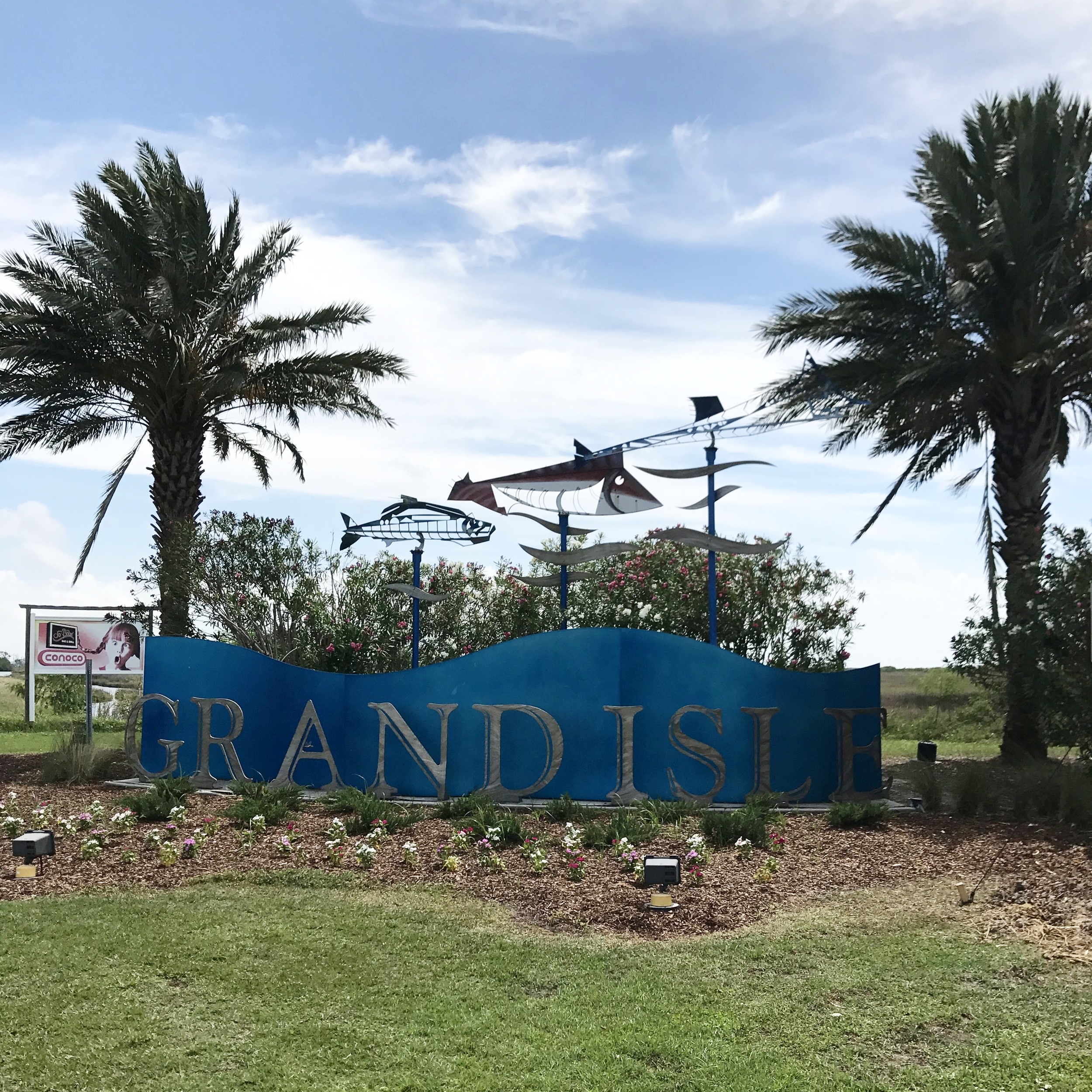
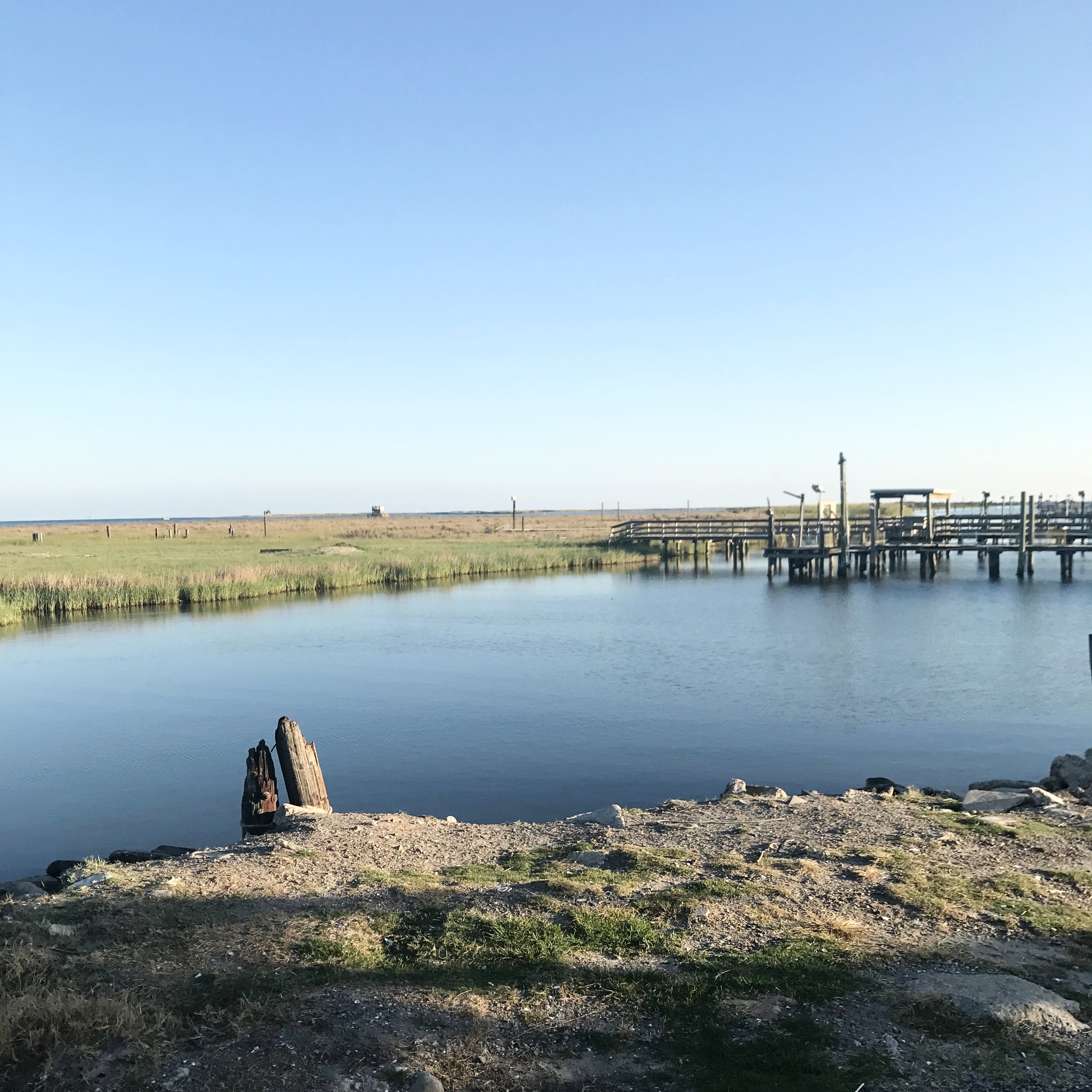
We got settled in at Sol et Terre, our seaside home for the three days spent at Grand Isle. We then enjoyed our first Louisiana meal at Jo-Bob’s Gas & Grill across the street (I had chicken tenders because I was too afraid of gas station gumbo) and befriended the convenience store cat, Jo-Bob. Whether the cat came before the grill, or the grill came before the cat, I shall never know. But Jo-Bob was a delightful cat, and I hope he remembers our brief romance as fondly as I will.
My great love.
Unlike Nantucket or any other vacation spot with which I’m familiar, Grand Isle is quiet, seemingly devoid of tourists. The air is so saturated with moisture that a slight breeze conjures droplets indiscriminately. The thick-as-molasses atmosphere yields a small population of locals who move just like that – molasses. They're in no hurry. Oh, and they're super nice.
After our group dinner at Yum's Restaurant, a few of us had the good fortune of meeting a lovely couple from the Baton Rouge area. They grow sugarcane and raise crawfish. Much like beaming parents, they pulled out their phones and began scrolling through photos upon photos of their critters, speaking in that round, rich Louisiana accent. Some of the most genuine people I've ever met. And yes, I do plan on heading up to their sugarcane farm at some point, just as soon as I find out what exactly sugarcane is. It's been explained to me so many times, it really has, but I'm going to need some pictures/diagrams/a short YouTube video.
But let's get to the heart of our purpose here. From the moment we set foot on the island, a certain novella was burning a hole in my bag. Upon opening the book, I saw the world through the eyes of Edna Pontellier.
Time to get serious.
I woke up that first morning and took my copy of Kate Chopin’s The Awakening – the first of eight books to digest during this trip – down to the beach. In the two days that followed, something strange and wonderful happened. It is a sensation I can only describe as “good eerie.” There is a quote from the book which has already been cited in the blogs of my friends: “The voice of the sea is seductive; never ceasing, whispering, clamoring, murmuring, inviting the soul to wander for a spell in abysses of solitude; to lose itself in mazes of inward contemplation.” I have lived by the sea all my life. I have heard its seductive voice before. But somehow, there on that beach, with the bath-like warmth of the Gulf licking my toes, I felt surrounded by ghosts.
“The water of the Gulf stretched out before her, gleaming with the million lights of the sun.”
The protagonist is Edna Pontellier, a woman who, over the course of a fateful summer at Grand Isle, comes to the realization that her life is stifling. She “awakens” to the fact that her loveless marriage, gender constraints of the time, and, yes, even her children trap her. This is the result of a budding love for her friend Robert and the inspiration drawn from Creole culture (to be explored in later blog entries). But, truly, the entity that has the greatest effect on Edna's transformation is Grand Isle itself. When, at long last, Edna learns to swim, she describes the immense power the sea gives her; one of “significant import” that has been “given to her to control the working of her body and her soul.”
So I, too, stepped into the the Gulf. I lifted my pant legs (they got soaked anyway) and walked all the way out to the cluster of rocks about 30 yards from shore. I sat there and listened to the waves crash, watched a pod of dolphins follow a fishing boat out to sea, felt the sun and the heavy air and the salt of it all wash over me. That was my first encounter with the good eeriness –- a sensation I know will become a recurring theme in my Bookpacking experience. Everything was exactly as Chopin, writing over a century ago, had described. The Gulf was just as Edna had left it. But much, of course, has changed. I am a liberated woman. Edna Pontellier and even Kate Chopin, herself, were not.
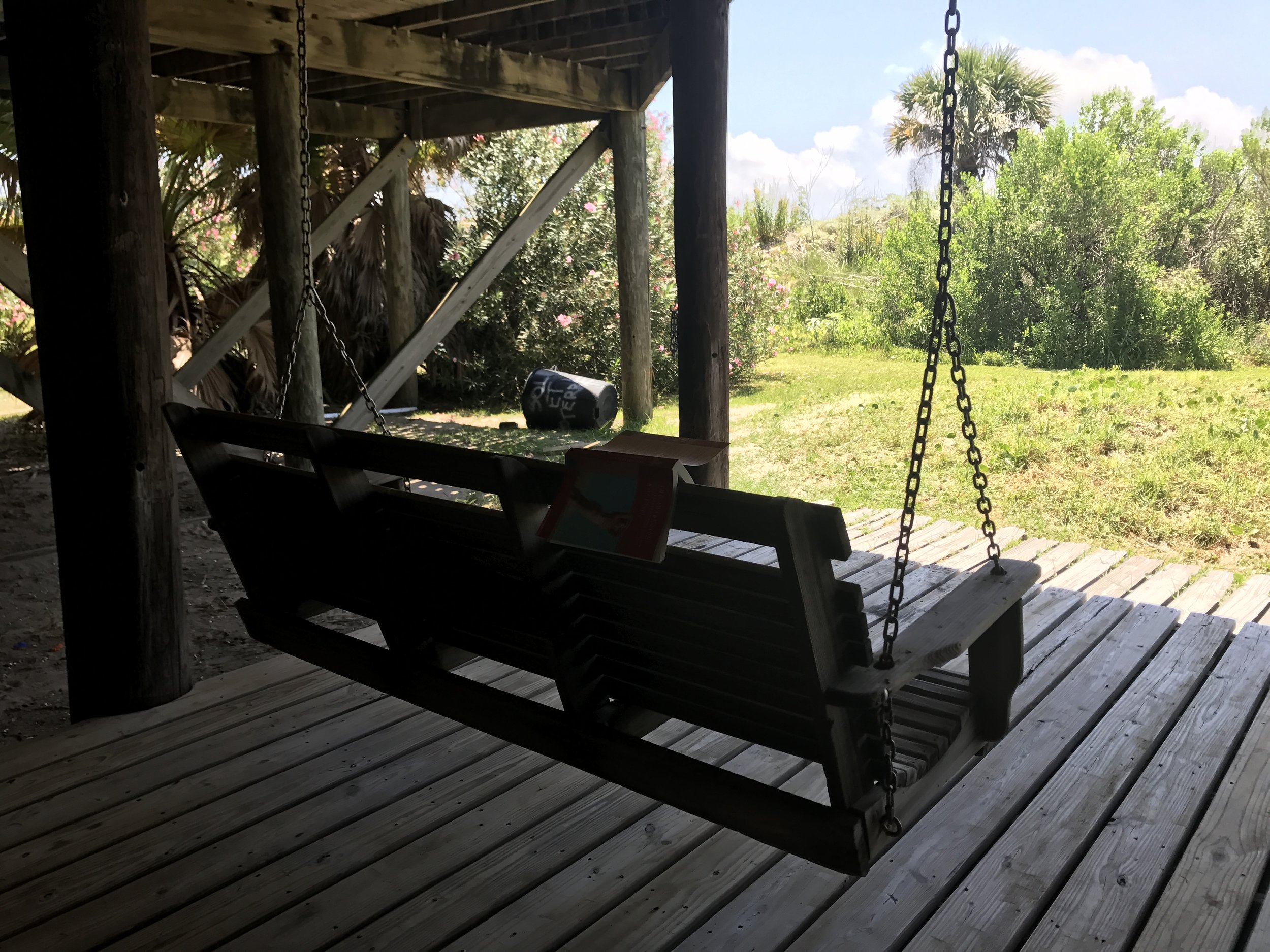
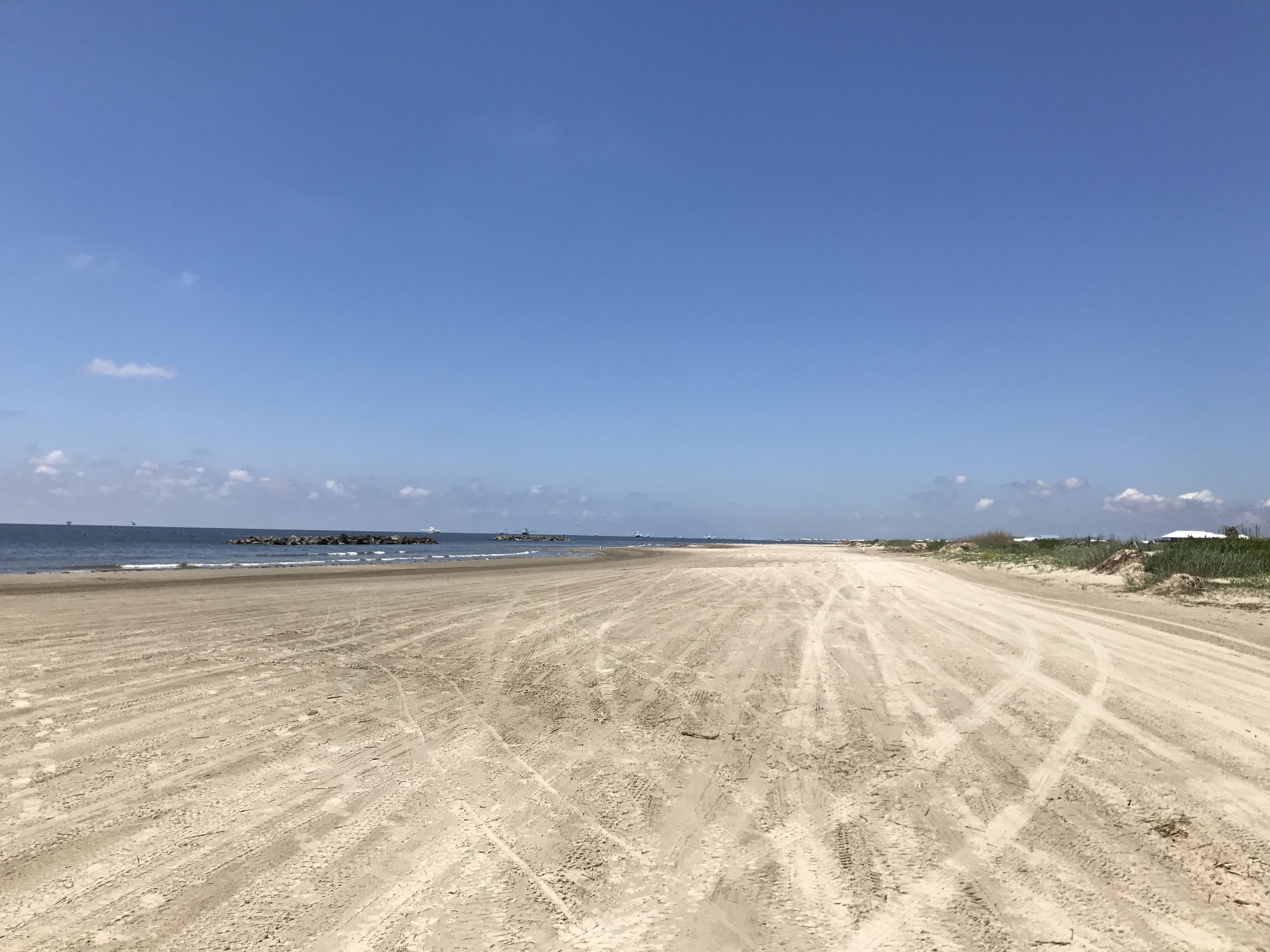
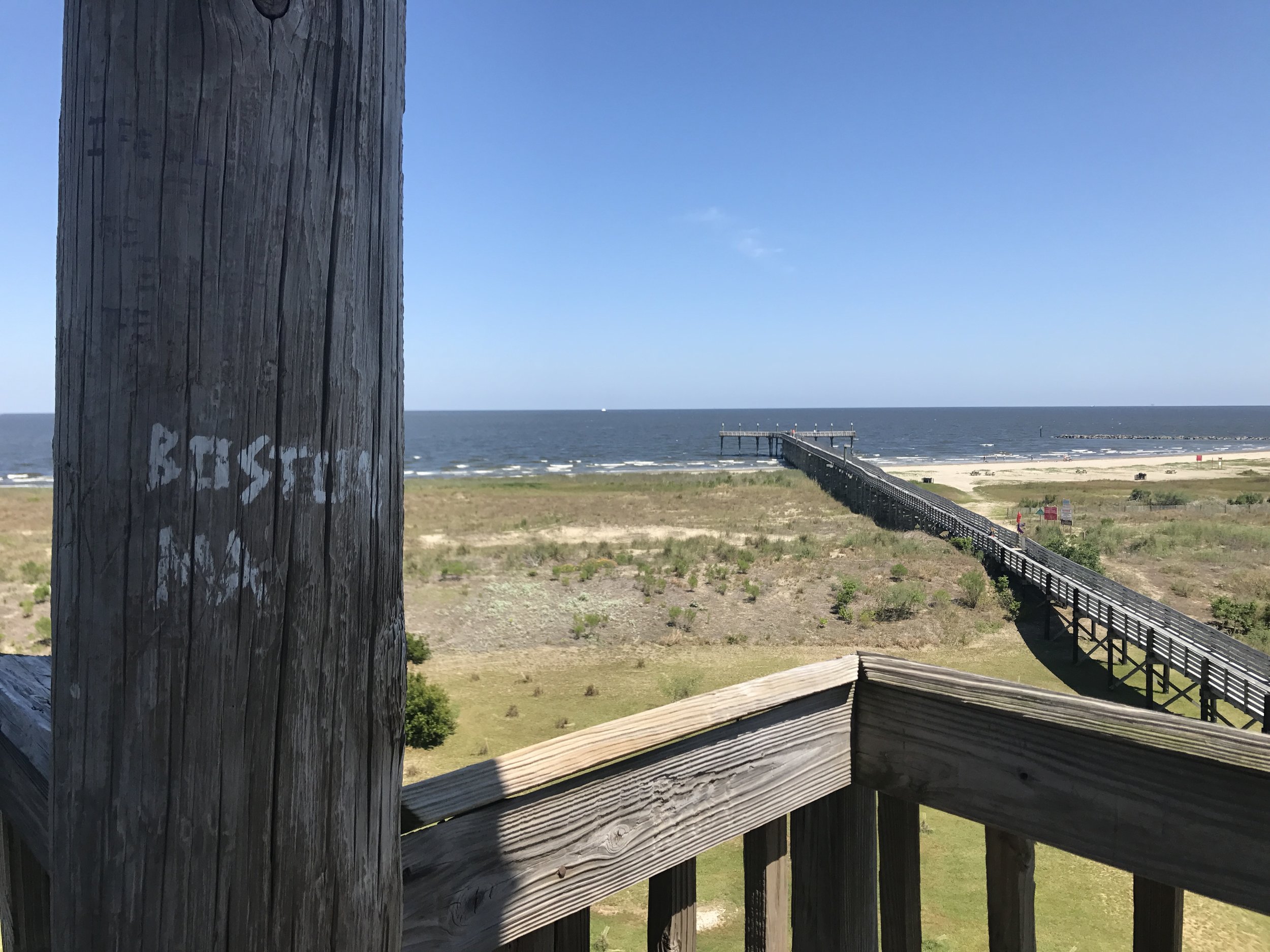
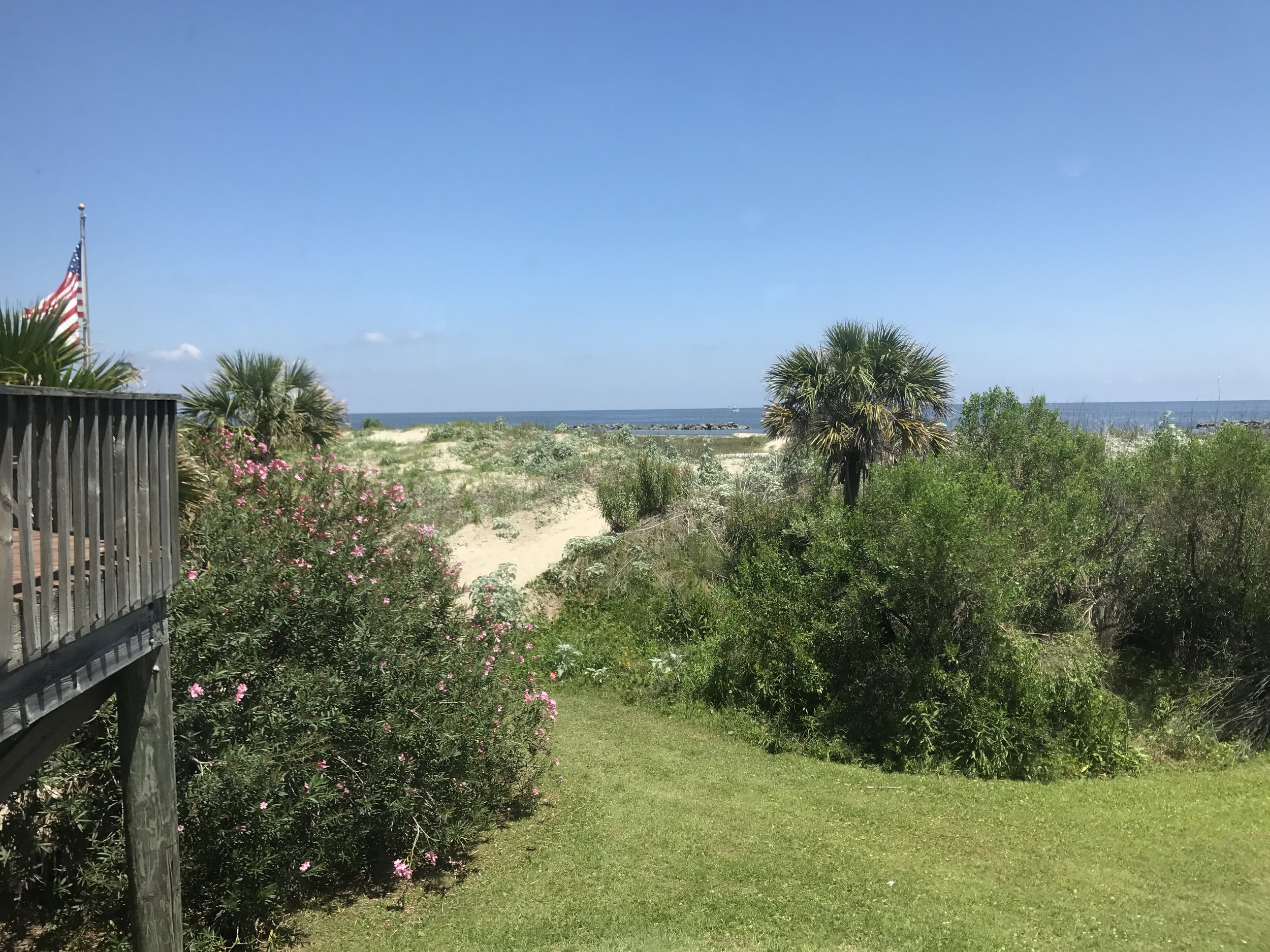
So as the sun set on my time at Grand Isle, I closed my eyes on the dying day by the ocean. For one extraordinary moment, I felt tethered to the generations of women who maybe came to Grand Isle long ago, as Edna did, seeking some semblance of freedom. It made me melancholic, for sure. But I was glad of the ghosts’ company.
Oh, the drama! Oh, the supernaturality! Oh, the crawfish! Mon dieu. Next stop is the bayou, my friends, so buckle your seat belts. We'll be encountering some *gasp* whiny, Creole vampires with too much time and money on their hands.
Also food. There will be food.
